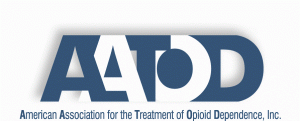What follows are a number of AATOD policy recommendations with regard to OTP development and oversight. We believe it is important to expand the footprint of OTPs throughout the United States, especially in suburban and rural areas. In considering such matters, it is important to point out that to have a positive impact in how OTPs function in a post COVID-19 environment, changes in state oversight need to be aligned with changes in federal oversight. This alignment is an important recommendation since a number of state regulations are not necessarily based on evidence-based practices. Illustratively, some state regulations require that OTPs use pharmacists to administer and/or dispense medication. In an environment of shortages in pharmacists, such regulations are burdensome and significantly add to the cost of treatment. No one has provided any evidence to support how pharmacists offer superior care in the OTP setting when compared to nursing or clinical personnel. Additionally, a number of state agencies or Medicaid authorities require patient-to-staff ratios without providing any particular rationale for doing so. Some state agencies/licensing bureaus have strict requirements in siting OTPs, especially if they are located near business districts, churches or learning centers. Additionally, some states have census capacity limits for OTPs, which are not based on occupancy standards. Federal and state oversight must also be aligned with third-party reimbursement practices including Medicare, Medicaid and private insurance. This integration is especially daunting but essential to guarantee success in any sweeping policy change in this sector. Accordingly, the following recommendations are primarily focused on OTP development.


Welcome to Las Vegas. We invite you to attend this evening’s AATOD Board meeting ➡️ bit.ly/4apbmVt #aatod2024
2 months ago

Join us for the highly acclaimed 8-hour clinician’s course which convenes on Sunday, May 19, 2024 ➡️ bit.ly/3UOKtVi
#aatod2024
2 months ago

📰 AATOD Unites Global Leaders in Opioid Use Disorder Treatment for Pivotal Las Vegas Summit
➡️https://prn.to/3wEvR2G #OUD #somuchmorethanmedication #aatod2024
2 months ago
💻 Welcome Message from Dr. Dinita Smith, Psy.D, MSW - #aatod2024 Conference Chair
Thank you to our generous Conference Sponsors, Hosts, Exhibitors, Keynote Speakers, Presenters, Volunteers, and the entire Conference Planning Committee.
Online registration is still available. We look forward to welcoming you to Las Vegas!
2 months ago

Post & Hashtag 📸
We would love to hear about your #aatod2024 conference experience on social media.
2 months ago

Conference Program Spotlight - Exhibits
The #aatod2024 Conference will attract over 1,600 physicians, social workers, nurses, counselors, program administrators, executive directors, and other treatment providers from many countries. Visit the AATOD Exhibit Hall for networking opportunities, to learn about new products & services and for guidance on how to improve patient treatment ➡️ bit.ly/3yi8T1M.
2 months ago

May 7, 2024 = #NationalFentanylAwarenessDay #JustSayKNOW
➡️ fentanylawarenessday.org
As many of you know, the #aatod2024 Conference is just one week away. Our impressive conference program consists of 2 Pre-Conference sessions, 4 Poster Author sessions and 1 Hot Topic Roundtable addressing the urgent problem of illicit fentanyl. These educational sessions are open to all conference attendees.
Please visit our conference program for more details ➡️ bit.ly/3Ue57Q6
3 months ago



You won’t want to miss these 3 POWERFUL Plenary Sessions ready to set the stage in Las Vegas less than 2 weeks. Register today for the #aatod2024 Conference, the world's premier training conference event for the Treatment of Opioid Use Disorder ➡️www.aatodconference.com⬅️
3 months ago
📣 Announcing the AMAZING Line-Up of Plenary Speakers
💻 View the #aatod2024 Conference Video Message from Ann Jamieson, MS,LADC/MH - AATOD’s Plenary Chair.
😊 We couldn’t be more excited about what we have in store for you next week in the spectacular city of Las Vegas where we will convene our conference!
🎤 You will not want to miss the three impressive plenary sessions that have been organized to deliver you extraordinary presentations for your educational purposes. These Plenary Sessions will cover a range of topics that highlight our conference theme, “Treating Opioid Use Disorder: So Much More Than Medication.” We have packed a lot of information into the plenary sessions and are excited to present the policies and strategies in Nevada and nationally.
Join us in Las Vegas by registering for the #aatod2024 Conference ➡️ www.aatodconference.com.
3 months ago
Tues 7/16 - Upcoming Webinar providing an overview of the updated final rules of 42 CFR Part 8 and how they affect methadone dispensation in carceral settings.
Register👇
#aatod2024 Conference – Las Vegas
COUNTDOWN

AATOD, Inc.
225 Varick Street, Suite 402
New York, New York 10014
Contact Us
Phone : 212-566-5555
Email : info@aatod.org
OPIOID EDUCATION
Stay Connected to AATOD











